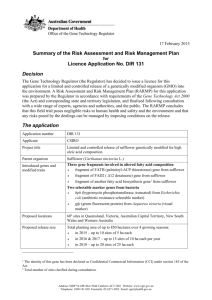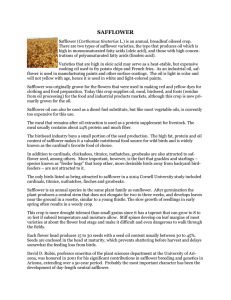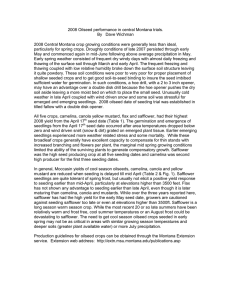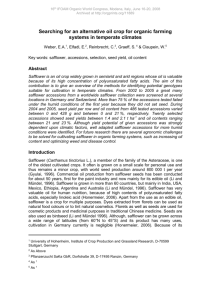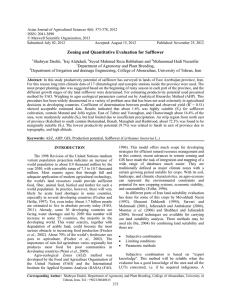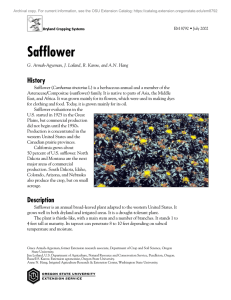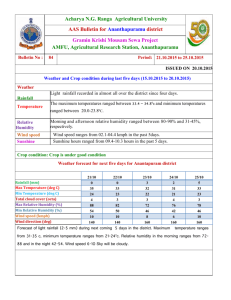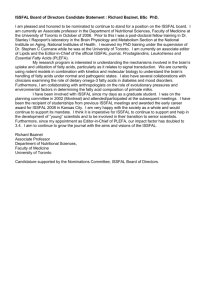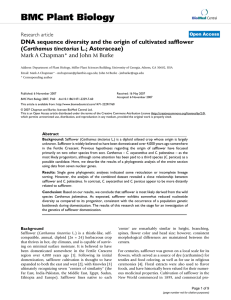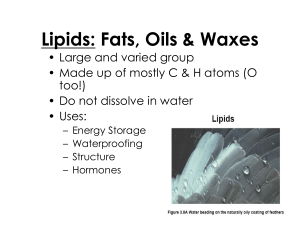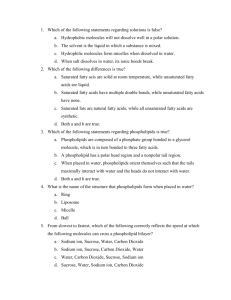G_1882_Safflower_Oil
advertisement
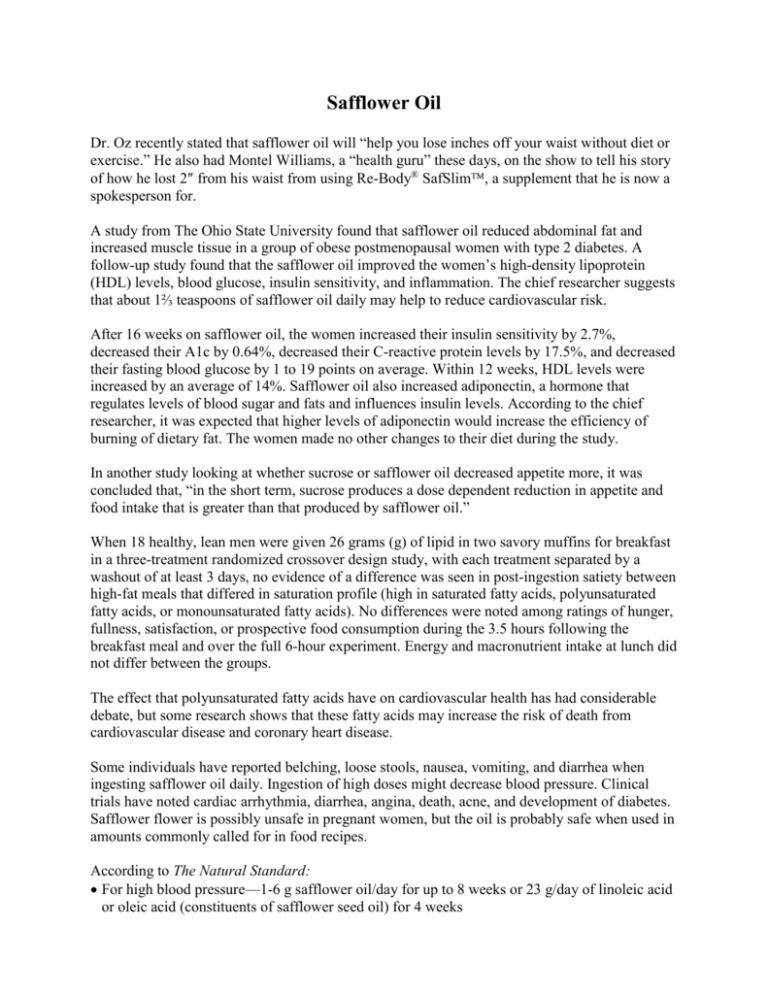
Safflower Oil Dr. Oz recently stated that safflower oil will “help you lose inches off your waist without diet or exercise.” He also had Montel Williams, a “health guru” these days, on the show to tell his story of how he lost 2″ from his waist from using Re-Body® SafSlim, a supplement that he is now a spokesperson for. A study from The Ohio State University found that safflower oil reduced abdominal fat and increased muscle tissue in a group of obese postmenopausal women with type 2 diabetes. A follow-up study found that the safflower oil improved the women’s high-density lipoprotein (HDL) levels, blood glucose, insulin sensitivity, and inflammation. The chief researcher suggests that about 1⅔ teaspoons of safflower oil daily may help to reduce cardiovascular risk. After 16 weeks on safflower oil, the women increased their insulin sensitivity by 2.7%, decreased their A1c by 0.64%, decreased their C-reactive protein levels by 17.5%, and decreased their fasting blood glucose by 1 to 19 points on average. Within 12 weeks, HDL levels were increased by an average of 14%. Safflower oil also increased adiponectin, a hormone that regulates levels of blood sugar and fats and influences insulin levels. According to the chief researcher, it was expected that higher levels of adiponectin would increase the efficiency of burning of dietary fat. The women made no other changes to their diet during the study. In another study looking at whether sucrose or safflower oil decreased appetite more, it was concluded that, “in the short term, sucrose produces a dose dependent reduction in appetite and food intake that is greater than that produced by safflower oil.” When 18 healthy, lean men were given 26 grams (g) of lipid in two savory muffins for breakfast in a three-treatment randomized crossover design study, with each treatment separated by a washout of at least 3 days, no evidence of a difference was seen in post-ingestion satiety between high-fat meals that differed in saturation profile (high in saturated fatty acids, polyunsaturated fatty acids, or monounsaturated fatty acids). No differences were noted among ratings of hunger, fullness, satisfaction, or prospective food consumption during the 3.5 hours following the breakfast meal and over the full 6-hour experiment. Energy and macronutrient intake at lunch did not differ between the groups. The effect that polyunsaturated fatty acids have on cardiovascular health has had considerable debate, but some research shows that these fatty acids may increase the risk of death from cardiovascular disease and coronary heart disease. Some individuals have reported belching, loose stools, nausea, vomiting, and diarrhea when ingesting safflower oil daily. Ingestion of high doses might decrease blood pressure. Clinical trials have noted cardiac arrhythmia, diarrhea, angina, death, acne, and development of diabetes. Safflower flower is possibly unsafe in pregnant women, but the oil is probably safe when used in amounts commonly called for in food recipes. According to The Natural Standard: For high blood pressure—1-6 g safflower oil/day for up to 8 weeks or 23 g/day of linoleic acid or oleic acid (constituents of safflower seed oil) for 4 weeks As an anticoagulant (blood thinner)—60 milliliters/day of safflower oil for 2 weeks For atherosclerosis (lipid peroxidation)—15 g safflower oil/day in postmenopausal women For cystic fibrosis—studies have used higher doses of safflower oil (102-132 milligrams/kilogram)/day for 6 weeks References and recommended readings Caldwell E. A dose of safflower oil each day might help keep heart disease at bay. http://researchnews.osu.edu/archive/saffoil.htm. Research News, The Ohio State University Web site. Accessed August 20, 2013. Safflower oil to bust your belly fat, pt 1. The Doctor Oz Show Web site. http://www.doctoroz.com/videos/safflower-oil-bust-your-belly-pt-1. Accessed August 20, 2013. Strik CM, Lithander FE, Thea-McGill A, MacGibbon AK, McArdle BH, Poppitt SD. No evidence of differential effects of SFA, MUFA or PUFA on post-ingestive satiety and energy intake: a randomised trial of fatty acid saturation. Nutrition Journal Web site. http://www.nutritionj.com/content/9/1/24. Accessed August 20, 2013. Study raises questions about dietary fats and heart disease guidance. ScienceDaily Web site. http://www.sciencedaily.com/releases/2013/02/130205200239.htm. Accessed August 20, 2013. Woodend DM, Anderson GH. Effect of sucrose and safflower oil preloads on short term appetite and food intake of young men. Appetite. 2001;37(3):185-195. Contributed by Elaine M. Koontz, RD, LD/N Review Date 8/13 G-1882
